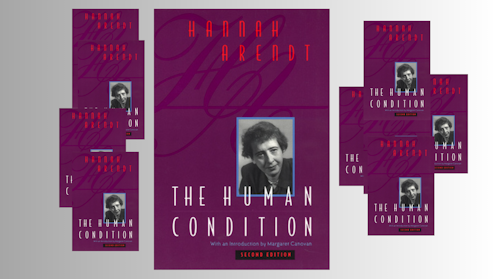The Human Condition by Hannah Arendt
- Written by Divya Jyoti, Lecturer in Organisation, Work and Technology, Lancaster University

Can you cook your way to stardom from a small kitchen in a tiny apartment? The answer, today, is a resounding ‘yes’. Look for a recipe, make a TikTok reel of yourself cooking, and unleash unlimited possibilities for public recognition. TikTok, as one New York Times article[1] puts it, is the “fastest way on earth to become a food star”.
Specialist consultants[2] and even degree courses[3] are now dedicated[4] to helping people become influencers on social media. Clearly such jobs have only been made possible by technological progress. But what kind of work is this? How might we understand this overwhelming desire for self-presentation? Is it of value?
Such questions point to even more fundamental ones, such as what it means to be human, what it means to be free, and whether work is a form of bondage or an essential condition of freedom.
Hannah Arendt[5], the German-American philosopher and political theorist, explored precisely such issues in her book, The Human Condition[6] (1958). Considered her magnum opus, it remains one of the key texts of the 20th century investigating the relationship humans have with each other and the world.







